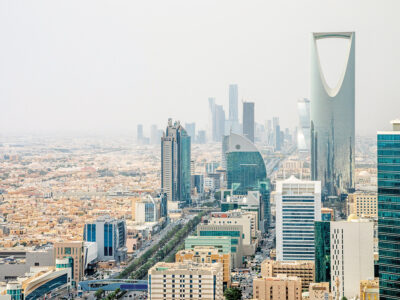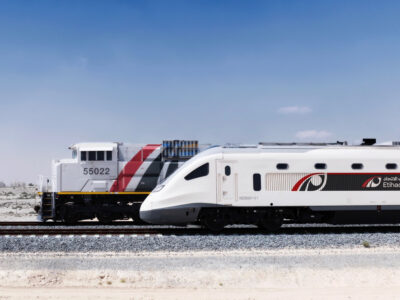Africa stands at a critical juncture, poised for unprecedented growth and progress. Yet, to turn this vision into reality, we must address the pressing need for robust infrastructure investments – an essential catalyst for any developing economy.
Currently, the infrastructure investment gap in Africa exceeds a staggering $100 billion annually, far beyond the capacity of the public sector alone.
In this pursuit, the power of collaboration and partnership cannot be underestimated. Enter the Gulf Cooperation Council (GCC), equipped with the technical expertise and financial resources necessary to bridge this investment gap through public-private partnerships (PPPs). The GCC’s strategic policy priorities and economic diversification interests align perfectly with the opportunity to support the continent’s development agenda.
The Gulf opportunity
In recent years, we have witnessed the power of PPP models to attract much-needed capital, enabling the government to focus on crucial areas of nation building and governance. These models enhance technical skills and project efficiency, streamlining service delivery while nurturing the growth of potential national champions through knowledge sharing between foreign and local teams.
South Africa has a well-established financial sector and is also home to multinational companies, making it a hub for business and investment in the region. The country has been in the forefront of promoting PPPs as a means of delivering infrastructure and services through its strong legal and regulatory framework.
Some of the key successful projects in SA include: The Bakwena Platinum Corridor, which was conceived to stimulate agriculture, manufacturing, mining, and tourism opportunities along the route.
Salient features of the project comprise, i) Improved important economic transnational corridor between South Africa and Botswana, and a large portion of the corridor between Zimbabwe, South Africa and Namibia, ii) Large contribution to surrounding communities, having invested around $7.2 million in socio-economic development projects along the route since the start of the concession, iii) Creation of over 3,300 jobs through the initial construction phase of the project and approximately 1,500 jobs over the life of the concession through the toll operator and routine road maintenance.

GCC invests in African infrastructure
Similarly, Kenya has embraced PPPs as a catalyst for economic development, effectively mitigating risks typically encountered in nation-building endeavors. Today, Kenya stands as one of Africa’s established PPP markets, boasting a comprehensive legislative framework and a robust pipeline of projects, including the 27.1km Nairobi Expressway, the Lamu Port South Sudan Ethiopia Transport (LAPPSET) corridor, and the Pangani Housing Project.
Spurred by economic diversification priorities, GCC countries are actively investing in high-growth sectors such as clean energy, manufacturing and logistics, while also committing to sustainable development projects like food and water security. Against this backdrop, the opportunities in African infrastructure align seamlessly with the GCC states’ multi-sectoral investment appetite.
Collaborating with Africa opens doors for GCC nations to tap into new markets, expand business operations, and secure access to abundant natural resources. Moreover, such collaboration strengthens diplomatic ties, fostering alliances in trade, security, and governance.
GCC entities have already tapped into the vast opportunities Africa offers, particularly in logistics and trade. For instance, the UAE’s DP World has invested in expanding and managing Kenya’s Port of Mombasa, which serves as a vital trade shipping gateway for East Africa.
DP World operates seaports across Africa and has announced its intent to invest up to $1.72 billion in logistics infrastructure in Africa, including further port modernization. Notably, discussions are underway between the UAE and Kenya to set up a Comprehensive Economic Partnership Agreement (CEPA), the first of its kind between the UAE and an African nation.
Meanwhile, in October 2022, Saudi Arabia signed a $15 billion memorandum of understanding with South Africa to explore opportunities in areas of common interest, including renewables, mining, tourism and agriculture.
In areas of sustainable development, such as clean energy and food security, GCC nations such as the UAE and Saudi Arabia are well placed to support the African development agenda. These countries have significant experience – and financial resources – required to develop and deploy clean energy technologies.

Meanwhile, the UAE, Saudi Arabia and Qatar have previously channeled investments into countries with strong agricultural and livestock potential, such as India, Australia and Brazil, to secure long-term food supplies.
The time for action is now. Let us seize this moment and collaborate to unleash Africa’s potential, fostering transformative change for generations to come.









